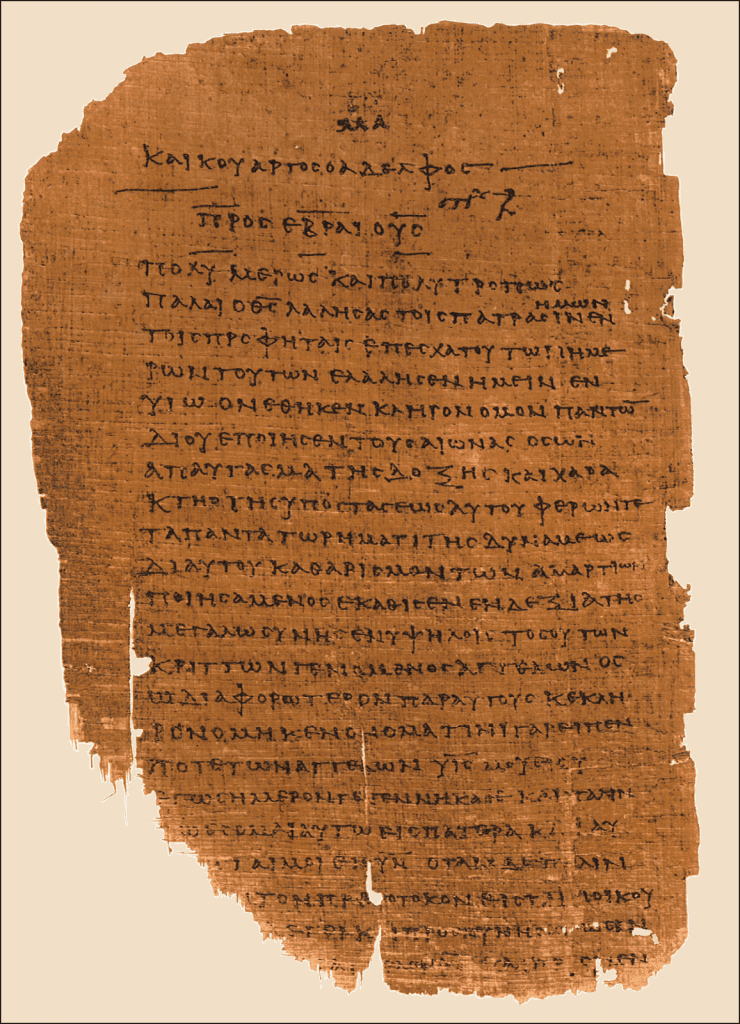Here is a very fine series of reflections by my friend and colleague Philip Jenkins. See what you think….
——
I recently had a sobering lesson in how we understand the New Testament. Obviously, it’s hard to make much sense of that text without at least some knowledge of the Greek in which it was written, to appreciate the nuances of the text, all the allusions and cross-references. But further, we have to understand that when that text’s authors and readers were referencing the Old Testament – which they did very frequently indeed – it often wasn’t in the form that we know today. We may know that fact intellectually, but the implications might escape us. So I offer another of my learned disquisitions (OK, they’re rants) about the importance of the Septuagint for understanding Christian origins.
Hunters, Traps, and Words
As I remarked recently, I am working on Psalm 91, and among other things, about what I believe to be its powerful and often unsuspected influence in many sections of the New Testament. Here is one example that I am arguing – it’s by no means the most important, but it does make the point. All three synoptic gospels tell the story of Jesus’s opponents trying to trap him on the issue of paying tax to Roman authorities, which Jesus resolves with his famous words about rendering to Caesar. But in Matthew’s gospel only, the exact choice of words for trapping is distinctive. Jesus’s Pharisaic opponents plan to “trap him in his words,” which leads to the famous dialogue about whether it is right to pay tax to Caesar (Matt 22.15). The King James version offers “how they might entangle him in his talk.”
I am confident that Matthew’s “trap him in his words” (or “entangle him in his talk”) is a direct allusion to Psalm 91, and specifically to verse 3 in that piece. You will then test that statement by looking up the psalm in any easily available Bible, and you will soon conclude that no such parallel exists. In the NIV, that verse promises deliverance “from the fowler’s snare and from the deadly pestilence.” The KJV offers “the snare of the fowler, and from the noisome pestilence.” Well, okay, we have a snare or trap or entanglement, but nothing else seems even slightly relevant to the Matthew passage. So how on earth do I draw any connection whatever?
The first readers and hearers of Matthew’s gospel overwhelmingly operated in Greek, and the Bible they knew was the Septuagint translation, created perhaps three centuries before Matthew’s own time. That translation is a fine piece of work in most ways, but the scholars involved had their own quirks and foibles, and sometimes they just made errors. In that Septuagint, verse 3 offered defense against the trap (pagidos) of the thereuton, which is more likely to mean hunter than fowler. That in itself did not massively transform the verse’s meaning, but in the following words, our old friend the “noisome pestilence” morphed into the harmful logos or word – what a seventeenth century commentator would nicely render as “the word that be-muddeth.” The error was easy enough, a confusion of the Hebrew word deber, pestilence, with dabar, word. The same blunder recurs in verse 6, where a plague becomes a generic “thing,” pragmatos, almost a thingamajig.
Any reader of the Bible in Greek would see no explicit reference to a pestilence or plague in verse 3, but would rather have to puzzle out why a bitter word was ranked so high among the menaces itemized elsewhere in the psalm, all the plagues and evil spirits and harmful beasts. With that in mind, let’s look again at Matthew 22, where the Greek text about “trapping in words” reads pagideusosin en logo. As I suggested, the odd Septuagint (mis)translation of Ps. 91.3 closely juxtaposes the reference to the hunter’s snare (pagidos) with the harmful “word,” logos: ek pagidos thereuton kai apo logou tarachodous. As in Matthew’s gospel – and in no other contemporary examples that come obviously to mind – trapping is linked to words. The English translation of “to trap,” as mere metaphor, loses the very specific implication of a hunter’s cunning and deadly device. Nor do the English translations reflect the three different words that each Synoptic author uses for “trap,” each with its own implications and allusions.
That connection to Psalm 91 would have occurred immediately to the gospel’s earliest audiences, who knew that psalm so well, and in so many significant contexts and functions. Matthew himself had already allowed the Devil to quote it, in the description of Jesus’s Temptations in the Wilderness. Once that allusion registered, the hearer would set the Matthew 22 story in the proper context, with the Pharisees as the would-be hunters laying their snares, yet failing, because God would deliver the faithful. Once we know that connection today, it adds enormously to reading the narrative that follows, as the trap forms around Jesus, but he extricates himself. Jesus is the potential prey – yet with one bound, he is free.












